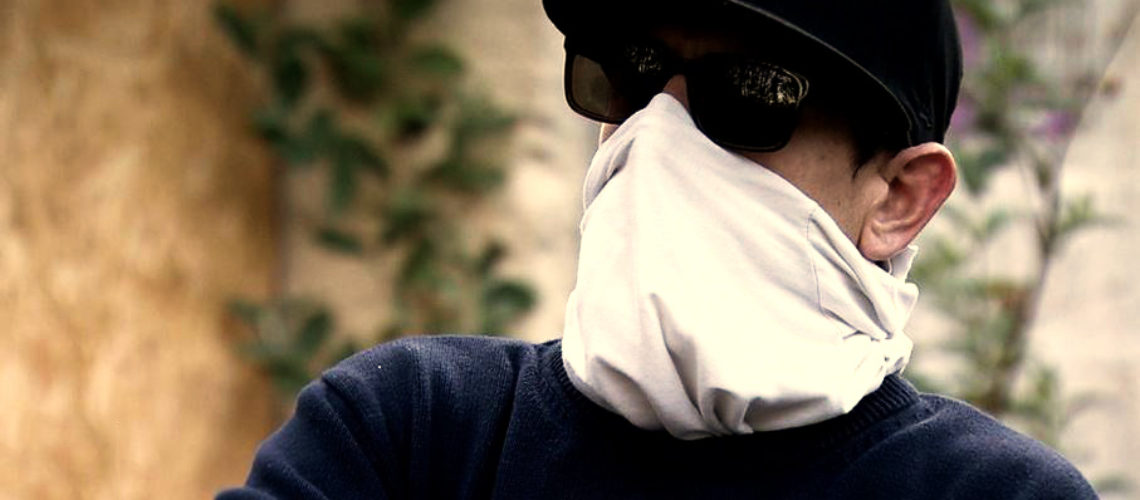It’s national hate crime awareness week.
This is a full-scale effort, involving the Crown Prosecution Service, police forces, the Home Office and the Ministry of Justice, and sundry anti race hate groups, many of which are tax-payer funded.
‘Hate’ in this context covers such crimes generally – against the disabled, religions, different sexual orientations, and race – but the principal focus is on race because the bulk of such crimes (78 per cent, according to late Home Office data) fall into this category.
Centre stage in this campaign, of course, is the BBC. True to form, they last week produced a Panorama programme in which sinister Brit thugs – fired up by the Brexit vote – were attacking anyone from the EU they could find. Over on This Week, they then gave a platform to a transgender person who declared that ‘the white race’ is ‘the most violent and oppressive force of nature on earth’.
Aiding the Corporation? Step forward Superintendent Paul Giannasi OBE, the National Hate Crimes Coordinator, who runs for the National Police Chiefs’ Council (NPCC) the portal for reporting hate crime. No, he is not a secret member of UKIP. Rather, he is part of a Facebook group called ‘We Love Europe’, and boy, does he. Mr Giannasi believes that the Brexit vote was a change ‘unwanted and unexpected’ that was an ‘expression of the tyranny of democracy’ which was ’caused by political arrogance, thirst for power, idiotic fears, prejudice, bigotry and incredible stupidity’.
And let’s not forget the special contribution of Hillary Rodham Clinton. On a book-plug visit, she was given oodles of BBC airtime to reject Brexit. Nigel Farage, she claimed, duped the British people with the ‘big lie’ – about topics such as immigration – and then went on also to sabotage her own election as US President.
In fact, the BBC declared war on Brexit, using race hate claims as a main weapon, over a year ago. It was among the most avid in reporting an alleged ‘spike’ in such offences after June 23 (of which more later) and then wrongly claimed on August 31 that the death of a Polish man in Harlow was a ‘frenzied’ murder triggered by post-Brexit race hate.
But what is the truth about ‘race hate’? Everything about the way it is framed and reported should send alarm bells about the veracity of any figures involved.
First, it’s almost certainly the easiest crime on the statute book to register, because, uniquely, alleged incidents are recorded by the police on a self-report basis via their specially-established website, True Vision (run by Supt. Giannasi). All a ‘victim’ has to do is register the ‘crime’ – and hey presto, it’s in the stats.
At a time when – as The Sun reported this week – police forces are working flat-out to limit ‘by hundreds of thousands’ the number of recorded burglaries, shop thefts, and even minor assault charges, they are simultaneously transferring their efforts to the ‘hate crime’ domain. The key supporters of the Stop Hate UK charity, for example, include a clutch of police forces.
Second, the definition of a ‘hate crime’ is also unusually loose. Such an offence is deemed to have been committed if the victim, or any witness of the incident, thinks they have been subjected to ‘hate’.
This ease of reporting has been accompanied by a mushrooming of associated interest groups, spearheaded by the government’s primary service provider, Capita, and this has no doubt contributed to rising volume of ‘race hate’ claims.
This ‘increase’ was trumpeted yet again this week in the annual hate crime figures released by the Home Office, covering until the end of March. True to form, the BBC’s report of the statistics is accompanied by a pic of one of the sinister-looking, Pole-hating thugs it had trawled Britain to find for its special Panorama edition.
These statistics show that there has indeed been a rise in recorded hate crime, from 62,518 in 2015-16 to 80,393 in 2016-17. But in the context of the lax self-report procedures, what does this prove? Does it reflect a rise in actual incidents? Or perhaps far more likely – in tandem with the vast amounts of money being spent in this arena, combined with publicity from the BBC, and the Remain faction generally – simply that there is increased awareness that such ‘crimes’ can be reported?
Whatever the reason, Amber Rudd’s Home Office was keen to stress the alleged ‘spike’ in race attacks and crimes after June 23 last year because of the Brexit vote. But drill down deeper into the report, and it quickly emerges that this, too, must be treated with a great pinch of salt because it is, to quote the report, based only on ‘anecdotal evidence’.
These figures also fail another vital acid test. The Crown Prosecution Service is responsible for bringing hate crimes to court and made clear in its annual report, also published this week, that this is a major priority.
What do their stats show? Well in the last year – despite everything noted above – the number of hate crime prosecutions fell by almost 1,000 over the previous year to 14,480. In other words, the number of so-called hate crimes with sufficient evidence to go to court is in sharp decline, despite all the resources and efforts being expended. On that basis, of the 80,000 race hate ‘crimes’ reported to True Vision, only about 18 per cent will be tested in court.
And the reaction? This BBC report emphasises in great detail the rise in number of recorded ‘crimes’, does not enumerate the fall in prosecutions, and has a long sequence about a Muslim ‘victim’ who concludes: “I really think it’s important for us to report, no matter what.” Of course.

